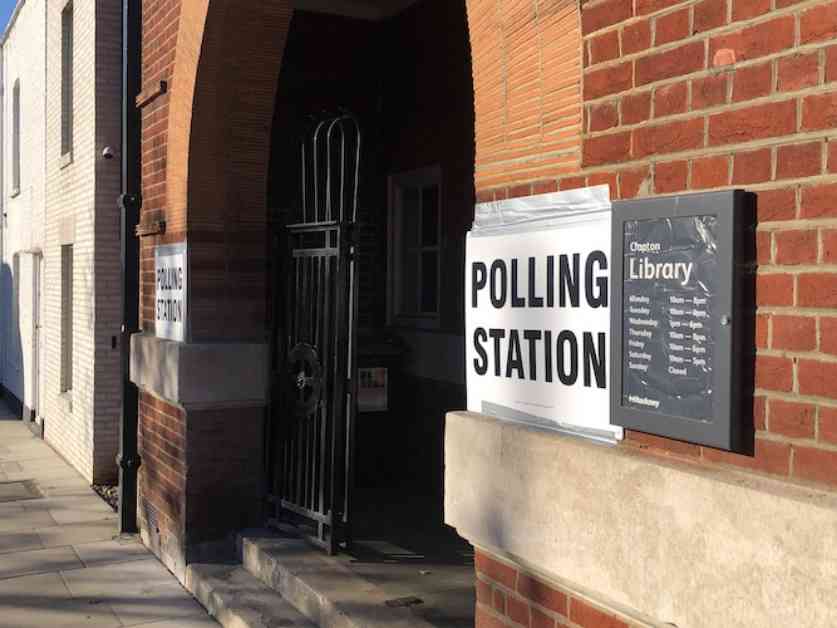Local Politicians in London: The Key to Defeating Reform in Britain
In the bustling streets of Greater London, the rise of Reform UK has sparked a wave of speculation and concern among residents and analysts alike. While Nigel Farage’s bombastic rhetoric has failed to gain traction in the city, the new incarnation of his party, Reform UK, seems poised to capture the attention of London voters in the coming years. With only one borough councillor out of 1,817, who defected from the Conservative party, Reform UK has already secured a London Assembly seat through proportional representation. Recent successes in a Barnet Council by-election have further boosted the party’s momentum, with their candidate receiving 18.4% of the vote—the highest yet for Reform UK in a London contest.
Looking ahead to the May 2026 borough elections, Reform UK is gearing up to make significant strides in London’s political landscape. Equipped with a well-organized campaign strategy, precise targeting, and a growing national presence, the party aims to secure more council seats in the city. However, as Tim Bale, Professor of Politics at Queen Mary University, aptly describes, the rise of the “populist radical Right” party poses a significant challenge to those who value the diversity and inclusivity of London.
The allure of Reform UK’s straightforward, common-sense messaging may resonate with some Londoners, particularly in light of the 40% who voted Leave in 2016. Yet, for those who envision a future where London’s Town Halls remain free from divisive rhetoric and nationalistic fervor, the need to counteract populist movements becomes paramount. Fortunately, local government institutions and councillors play a pivotal role in safeguarding the values of democracy and community cohesion, providing a shield against the encroachment of extremist ideologies.
The Strength of Local Politics
One of the distinct advantages that local government holds over national counterparts is the higher level of trust and respect it commands from voters. Unlike the skepticism and disillusionment often directed towards national figures, local councillors are viewed as accessible, accountable, and attuned to the needs of their communities. This inherent connection with constituents serves as a bulwark against the divisive tactics employed by populist movements like Reform UK, which thrive on exploiting public discontent and sowing seeds of mistrust.
The outcomes of local elections are not merely a reflection of national political trends but are deeply influenced by localized issues and dynamics. The 2022 borough elections, where Labour made significant gains in traditionally Conservative strongholds, underscored the importance of addressing community-specific concerns and engaging with voters on a grassroots level. As the political landscape evolves, the role of local politicians becomes increasingly vital in preserving the democratic fabric of society and thwarting the rise of extremist ideologies.
Lessons from History: A Blueprint for Resilience
The history of political movements in London offers valuable insights into the strategies for combating radical ideologies and preserving democratic values. The case of the British National Party’s brief ascendance in Barking & Dagenham Council serves as a cautionary tale of the dangers posed by far-right extremism. However, through concerted efforts, community engagement, and effective leadership, Labour was able to reclaim control of the council and prevent the spread of fascist ideologies.
The success story of Barking & Dagenham Council serves as a testament to the power of local representation and the impact of dedicated politicians in fostering social cohesion and resilience. By prioritizing genuine engagement, responsive governance, and inclusive policies, local councillors have the potential to counteract the allure of populist narratives and advance a vision of unity and progress for all residents. As political commentator Peter Kellner aptly notes, the credibility of messages denouncing populist parties hinges on the respect and trust that voters place in their local representatives.
As London braces for the upcoming electoral challenges posed by Reform UK and other populist movements, the role of local politicians emerges as a linchpin in safeguarding the city’s democratic values and diverse communities. By embodying the principles of accountability, empathy, and inclusivity, local councillors can navigate the complexities of modern politics and steer London towards a future defined by resilience, unity, and progress.
OnLondon.co.uk provides unique coverage of the capital’s politics, development, and culture. Support the website and its writers for just £5 a month or £50 a year and get access to exclusive content. Details can be found HERE. Follow Dave Hill on Bluesky for more insights into London’s political landscape and upcoming challenges.





















